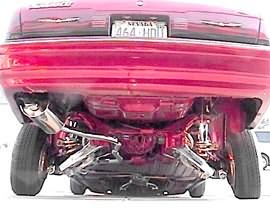I Hate “The Russians,” “The Americans,” and “The Canadians”

Yes, I know it’s just built into the language, but the way international relations are discussed drives me nuts. Even nice people – friends of mine – write easily in language that I try to edit out of Peace Magazine as offensive stereotypes. My friend Joanna, in an excellent article, wrote about how “the Americans” got angry at some multilateral meeting where they didn’t get their way. I changed her term to “the Bush administration officials,” and she never even noticed it.
I loathe the great majority of Bush Administration decisions, and so do almost all of the Americans I know. Hell, “the Americans” didn’t even elect him! (In my opinion, probably neither in 2000 nor in 2004, but I admit that nobody can prove that conclusively anymore.) I am an American and also a Canadian. If I could pick up citizenships easily, I’d also be a Russian, an Israeli, and a Cuban, though I despise the majority of the [policiesof those countries’ regimes.
Look, we learned ages ago to be more sensitive than to talk with sweeping generalizations about Jews and Blacks. You can even get into legal trouble in Canada for creating “hate literature” against those or any other groups. But the same people who would be horrified by anti-Semitic remarks will utter, in my presence, even in my living room where they are invited guests, really offensive generalizations about “Americans,” as if we were all a flock of sheep. I am also a Canadian, and I have to be careful not to make such remarks about “the Canadian people,” though most of the Anglophone Canadians whom I know do not seem to mind at all. Some Francophones do.
I just had a conversation with Leslie Howard, an American friend (here the word is appropriate because I’m referring to his citizenship, not his political ideology) who lives in Southern California but studies transborder culture in the US and Mexico. He used to live in Canada and he says he refuses to use the word “American” to refer only to the United States population. Partly it’s because he thinks Canadians are also American. I would say instead that they are also North American, which is perfectly accurate. Most Anglophone Canadians whom I know would dislike being called “Americans,” though, for their so-called identity involves distancing themselves from the dominant United States culture and especially from those holding office in Washington.
Part of Les’s objection to “American” and “Mexican” as social categories derives from his research and the finer distinctions that it requires. He says that there is a “border culture” that exists for a few hundred miles into both countries. For example, he mentioned “lowriders” as a “border” cultural item. I thought he was referring to the new fashion in jeans, which expose about three inches of belly, but that idea puzzled me, since naked bellybuttons can be seen all around the world these days. No, it seems that “lowriders” are cars that have been customized with extra furnishings and lowered on the wheel base. (Se photo.) I don’t think I’ve ever seen one, probably because I don’t live in San Diego or Tijuana.
However, throughout California, the population of Spanish-speaking origin is now approaching half. I don’t hear much Spanish spoken in Berkeley (though more than I hear French in Toronto) but there is an ongoing issue about instruction in the schools. Today’s paper notes that, although a law was enacted requiring all instruction to be in English, there is no evidence that it has improved the fluency of Mexican-American children’s English, as compared with bilingual instruction. I gather that the issue is a closed matter, though.
Anyway, I will continue to campaign against the sloppy use of the term “American” to apply to government policies and officials, or to a culture that is as diverse, even polarized, as the one prevailing in the United States. It’s an uphill campaign, though, because of the historical development of language and of nationalism.



0 Comments:
Post a Comment
<< Home